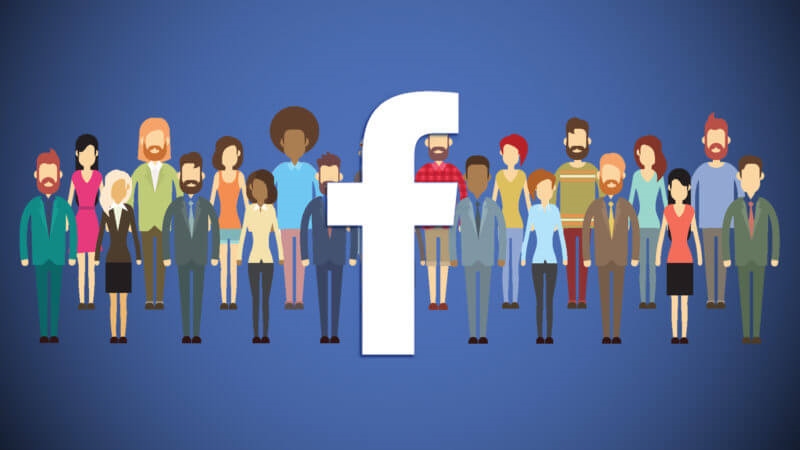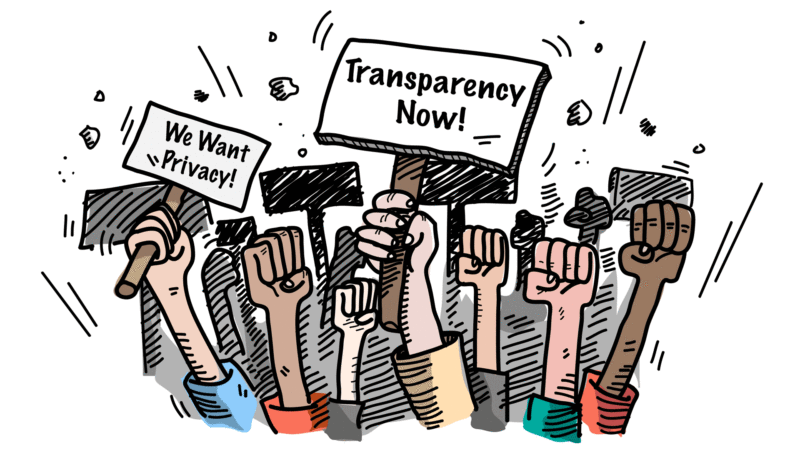What’s the future of consumer data now that Facebook is pulling back?
With all the furor over data lately, are marketers and advertisers doomed to do without? Contributor Ryan Phelan weighs in.

We’ve been seeing a lot of discussion in the news about Facebook, data and privacy following the social media company’s disclosure of the misuse of its data by Cambridge Analytica, which ran highly targeted ads for the Trump campaign in the 2016 election. Now, in an effort to placate regulators, investors and users, Facebook has changed its policies regarding third-party data, and more shifts may be in the works.
I’ve written extensively about the power of third-party data and how effective and necessary it is for personalized marketing. You won’t be surprised, then, to find that I support using third-party data in marketing programs.
In fact, I encourage it because it makes your messages more relevant, and relevancy is what consumers want above everything else. What they don’t want, however, is manipulation.
The furor, as I see it, is all about the use of data to manipulate. That’s the essence of “creepy data” that I’ve warned marketers about using.
What’s the long-term impact on Facebook and data sharing?
At this point, nobody knows. We’re still in the early stages of learning what’s happening and what the implications are. Facebook CEO Mark Zuckerberg will be facing congressional hearings in the United States and potentially in the UK as well.
The latest news is that Facebook is removing third-party data sources — from brokers like Epsilon and Acxiom — from its Custom Audiences targeting.
Whether this is a smart move or a short-term mistake has generated much discussion in our offices and in the industry overall. Will advertising suffer? Will marketers get more stupid? (By this I mean that they wouldn’t be able to target messages effectively, which could generate a consumer revolt.)
One thing is clear: Facebook is reacting to an overreach by a vendor by going backward in a data-driven world that’s relentlessly moving forward.
It’s a market correction, not a stopper

That’s my take. We’re seeing a correction that’s occurring in the same way it does in the stock market. When stock values get unsustainably high, a selloff typically results. Yet, in the short term, it would seem that this selloff went a bit too deep.
Yet there’s no ignoring consumers. It’s a given that they will change their expectations and behavior regarding privacy when it affects them personally. As we’ve seen in earlier data breaches, whether data was stolen or hacked, that’s when it all gets real for consumers.
Three changes the Facebook-data issue should inspire
1. Consumers won’t delete their data or leave Facebook, but they will respond to transparency
As I’ve said, consumers want relevance over everything. They’ve shown this preference over and over again, whether by choosing more personalized online experiences in general or by editing their email preferences or whatever’s on offer. Everything is customized to who they are, where they are and what they want.
The advances in data science now give marketers sufficient information to make good decisions when targeting messaging, whether it involves first-, second- or third-party data.
I don’t see that changing. I don’t see marketers abandoning third-party data or propensity modeling to drive decision-making. I also don’t see consumers demanding that marketers stop using their data. What I do see is that consumers want relevancy and transparency, not narcissistic manipulation.
Remember when Acxiom debuted its “About the Data” portal? For the first time, a major data broker gave consumers the tools to see the data it had collected on them, to change or update it or to have it removed.
Did consumers pull out their data en masse like a bank run in the Depression? No. They updated their information to make it more accurate. I expect Facebook will follow suit to give consumers more control over their data. (Google already does.) This falls in line with the European Union’s General Data Protection Regulation (GDPR), which requires brands to cede more control over data and privacy to EU consumers.
I don’t believe that Facebook will limit data access for advertisers or revise privacy settings to be fully in compliance with GDPR globally, but the company will continue to move toward greater transparency and consumer control.
While a few prominent Facebook users recently deleted their presence on Facebook (I’m looking at you, Elon Musk), I don’t see consumers following suit. Why not? Because of FOMO — fear of missing out. They don’t want to leave Facebook, Twitter, Instagram or Snapchat because they’d miss all the photos from their friends’ dogs’ birthday parties.
2. Consumers must recognize their culpability
Consumers are angry about how their data has been handled, and they should be. But consumers played a big role in handing over more data than they realized.
While the furor over Facebook data rages, some consumers will tweak their data and adjust their settings. But then I expect they’ll go right back to playing “Candy Crush” and taking those deceptively inane quizzes that extracted so much personal data so painlessly.
This is where consumers must shoulder their share of the blame for the loss of data privacy. One reason we’re in the mess we are is that consumers don’t pay attention to the information they’re giving away. Often, they simply agree to Terms and Conditions without reading the fine print, even when game developers ask for access to everything from their contact information to their friends list.
Teens, especially, are overly trusting. Our 2017 Consumer Digital Usage and Behavior Study found that while 65 percent of all US consumers claim they read the terms and conditions before downloading games and apps, teens were considerably more trusting than their elders.
They’re more interested in the games and apps they can download. In general, consumers are not paying attention, and then they act surprised that information about them is publicly available. It’s the consequence of an imbalance in the value exchange of their data.
3. Consumers must keep the heat on data
In this culture of “ready-fire-aim” news and the 24-hour news cycle that spins out of control, it might well be that this story and its implications will be replaced by the next scandal before we can truly make sense of it.
Did the Target data breach hurt the company in the long run? No. Is Experian still in business after it exposed the data of millions of consumers? Yes.
This time, consumers must keep this problem in the spotlight and keep pushing for change and more control.
One reason we don’t have privacy legislation that’s as strict as Canada’s Anti-Spam Law (CASL) or GDPR is that consumers aren’t screaming for it. There’s been no significant push for similar legislation here, beyond the comparatively weak set of CAN-SPAM laws and regulations.

Wrapping up: It’s in consumers’ hands now
Yes, data collectors must be held accountable for how they collect and use data. We need more transparency. Yes, we want Mark Zuckerberg to appear in front of Congress and answer questions about how Facebook collects, shares and protects its users’ data.
At the same time, though, we consumers also must open a line of communication with Congress to explain why we give out data unheedingly, why we need our data protected and what we are willing to do to make that happen.
Opinions expressed in this article are those of the guest author and not necessarily Marketing Land. Staff authors are listed here.
Marketing Land – Internet Marketing News, Strategies & Tips
(36)


